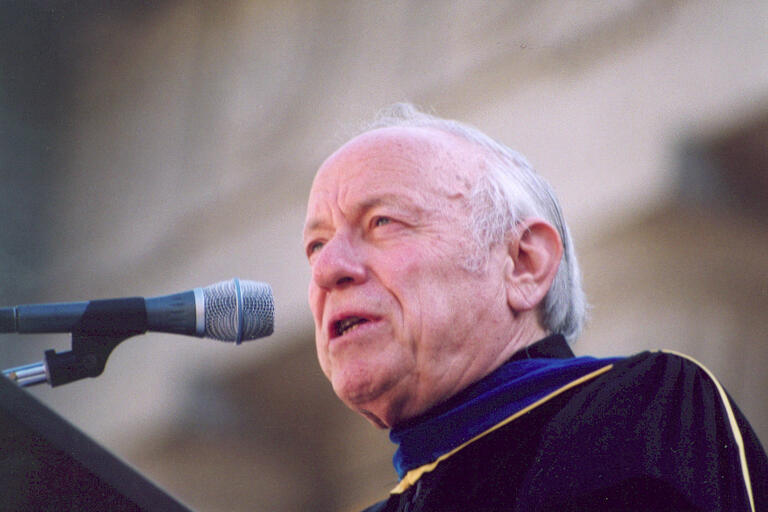
UC Berkeley’s Department of History is recognizing one of its most beloved professors with a new speaker series devoted to African American history. The series extends the legacy of Leon Litwack, a trailblazing scholar who taught generations of students to peer behind the curtain of whitewashed narratives and learn difficult truths about their country’s past.
Few areas of scholarship are as contentious — and consequential — as African American history. Litwack shifted the common approach to Reconstruction-era history by emphasizing the perspectives of freedpeople following emancipation. Previously, the overwhelmingly white historian corps frequently treated enslaved and free African Americans as unnamed cameos without agency in their retrospectives on slavery.
The new speaker series will expose Berkeley scholars to thought-provoking ideas, building on the Leon Litwack Prize for African-American History.






